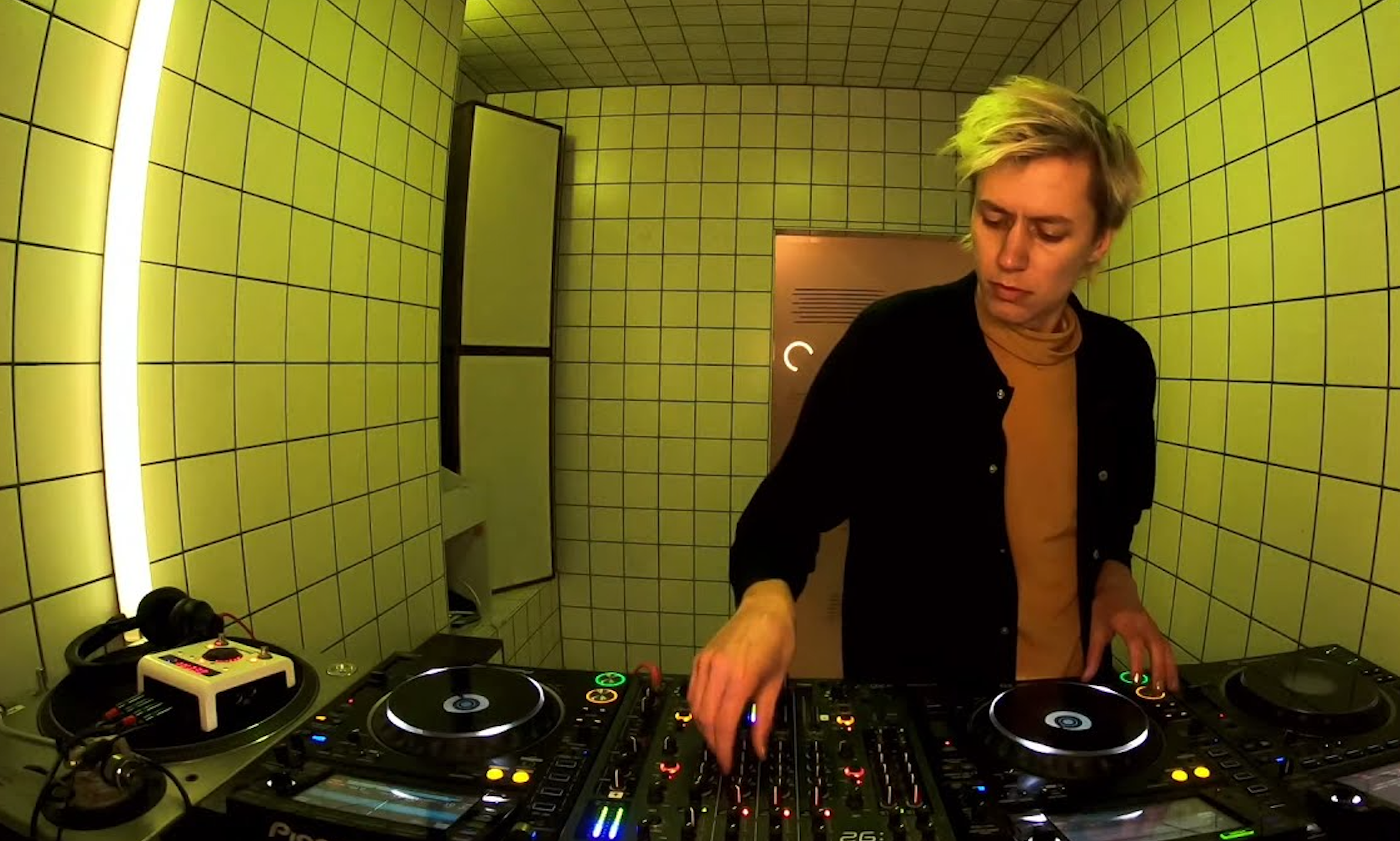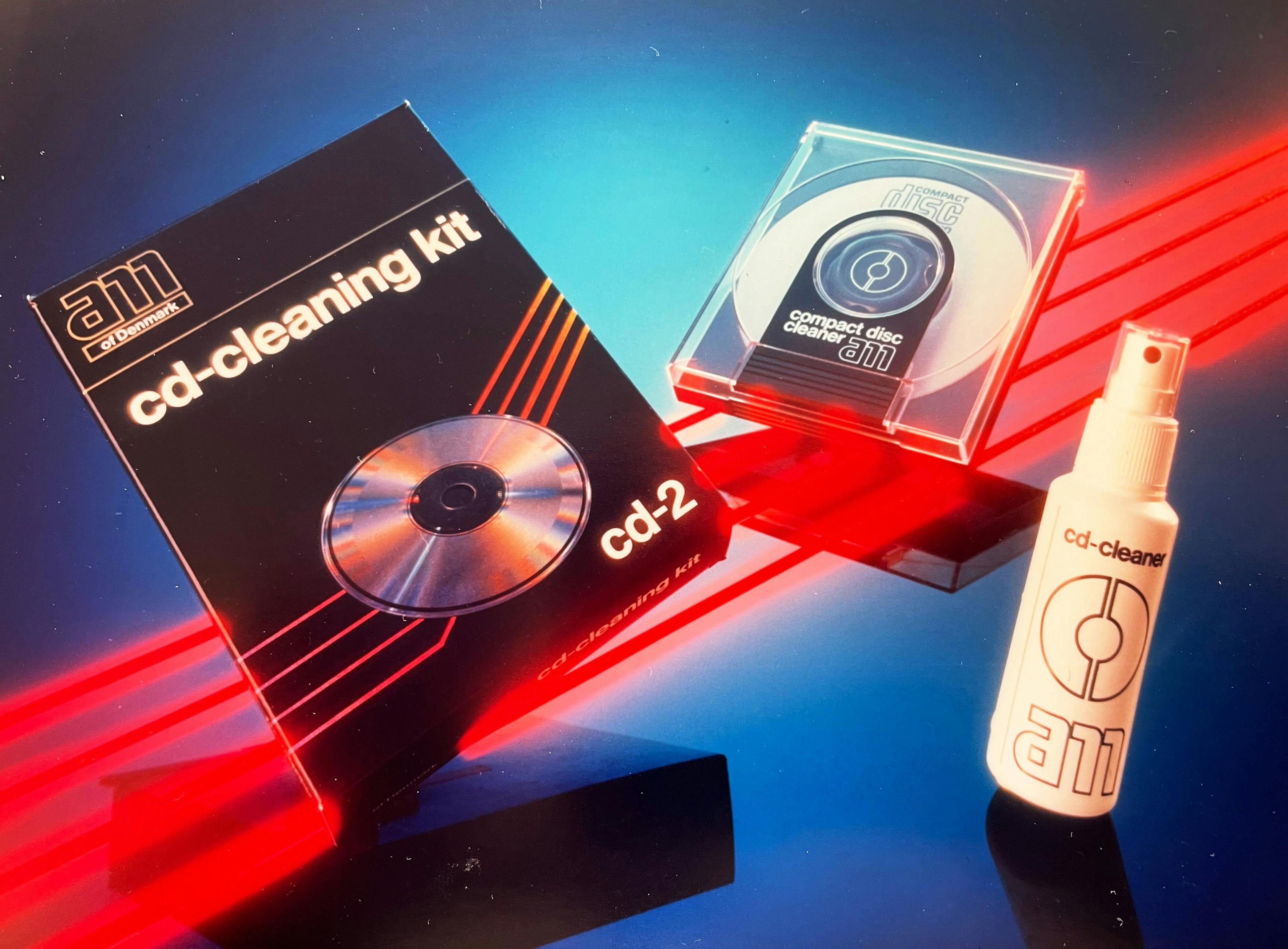Magnetic Mag: Industry insider Jacob Moesgaard of AM explains the revival of vinyl
Originally posted by Magnetic Magazine.
Vinyl is at an all-time high right now and it's pretty incredible to watch the revival happen in tandem with the digital age. The recent boom represents a myriad of different things- music sales, contrary to popular belief, did not quite die, art itself is still seems very much alive, and people are still interested in carrying physical copies of albums.
With that in mind, we knew we had a lot to discuss with the team at AM, a unique company that focuses on accessories to take care of records. They are the original vinyl cleaning company after all, so they know a thing or two about the record industry. We sat down with their CEO, Jacob Moesgaard, to talk about the future of music, vinyl's past, and more.
How did you start your career in the electronic music business?
Experiments with recorded electronic music actually date back to the 1940s; even as early as the mid 1950s, predominantly electronic LPs were already being pressed on vinyl. Over half a century down the road, many of these records still sound good. My father started AM back in ’71 when almost every household here in Denmark owned a turntable, so in that sense, I’ve always been surrounded by it and interested in how we listen to music.
What is the best part of the business?
It’s great to see so many young people starting to get into vinyl. Record shops used to be the sole preserve for local teenagers – that was the golden age of vinyl. These days they’re just as worn and lived in but a bit less dusty than in recent years.
What are the biggest challenges?
Technology probably. At one point, we kind of felt like the last man standing – the different ways that we listen to music and our relationship to music have changed so rapidly over the past half century. CDs and MiniDiscs lost their shine as tech-savvy, cash-poor teenagers stopped buying them but vinyl survived that.
What career advice would you recommend to someone just starting off?
I think that these days, pretty much every musician is painfully aware that selling music is an increasingly tricky game. My best piece of advice for someone starting out is to just not get stuck in a certain way of thinking. Think outside the music and be creative. It’s also all about sharing the good stuff.
As the music industry continues to grow, what do you think the secrets to longevity in this business will be?
I think that the music industry has always been the same; artists with longevity are the ones who really know how to connect with their fanbase. With the rise of social media there are more ways than ever to build a loyal and engaged following. EDM artists should also be at the forefront of new technology and embrace change to remain relevant. And of course, the music itself is central to everything - without this there’s nothing, so focus on really learning your craft.
What cities/regions do you think electronic dance music is best thriving?
When it comes to underground and leftfield dance music, I think London’s always been ahead of the game. It’s also host to some of the best venues on the EDM scene; Corsica Studios for example, occupying two railway arches under Elephant and Castle, and of course the one and only, Fabric. It’s also a really nice melting pot for small independent labels.
What are the biggest common mistakes people are making when it comes to taking care of vinyl records?
I think the essential-ness of storing records in poly sleeves is sometimes overlooked. A polyethylene-lined sleeve is soft on your records and keeps static to a minimum – good news for keeping the dust out. We’re actually doing some research right now on finding the safest way to store your records when you’re not playing them. The biggest mistake a lot of people make though I think is to buy records and then not listen to them. I sometimes feel it’s strange that the ultimate in a record collection is a mint record. As someone who loves listening to music, it’s weird to me that we crave records that someone bought but never listened to. If we just look after our records they should outlive us all.
Why do you think people are making the shift to records in the digital era?
I think it’s twofold in that the baby boomers are going back to vinyl, driven maybe by a kind of midlife nostalgia, but the younger generation are also discovering it in a way they weren’t before. We’re seeing more and more that young people still want something tangible and real and that’s where vinyl is taking on the role that the CD used to have. There’s also been this cultural shift where people are willing to pay for music again which is great.
Places like Urban Outfitters sell record players by the dozen, but when it comes to listening to records and truly enjoying the dynamic experience, what record players would you recommend?
Don’t get me wrong; Crosley’s turntables are compact, convenient and cheap. They’re also colourful and immediately appealing; they look like fun, in a way that hifi equipment rarely does. But if you ask me, there’s really no appreciable sonic difference between the quality of a Crosley speaker and your laptop. If you’re looking for a beginner, audiophile-quality turntable that won’t break the bank, I’d go for something like the Pro-Ject Essential II or the Audio Technica AT-LP60BK - the latter being a very good choice for anyone in the market for an entry-level turntable which includes a built-in preamp.
How often should we be cleaning records?
It’s a good idea to get into the habit of giving your records a quick brush before you play them, and then again before you slide them back into their sleeves. The best brushes out there are made of carbon fiber – they remove the static from your records as well as any dust or loose particles - you’ve just got to be sure that the brush you buy is actually made of carbon fiber. I’d also recommend giving any second hand vinyl you pick up a deeper clean before you play them. Record cleaning machines are ideal for this, but also expensive; a liquid cleaning solution and lint free cloth together with a little bit of elbow grease can also work wonders. Same goes for new records – they’re normally coated with dust, even on a micro level – plus the oily pressing plant release agent.
Similarly, how often should we be prepared to get a new stylus?
The life of a stylus varies a lot depending on the manufacturer and the material it’s made from; so first things first, it’s worth checking what their recommendation on lifespan is. You’ll be looking at anything from a 150-200 hour life for a Nagaoka stylus, to figures as high as 1,000 hours. Generally, the signs that a cart is running out of go is a duller or noisier sound and often a degree of channel imbalance.
Finally, what makes a record well made? When do we know we're truly paying for quality?
Some people talk about the weight of the record being important but I think that actually has very little to do with the sound quality of the music engraved in the grooves. The mastering, or cut, doesn't change or vary in any way depending on the weight or thickness of the vinyl - there’s no specific mastering for 140g, 160g, 180g or 200g vinyl. It’s mostly about the disc being more robust and durable. And then there’s the “Originals vs. reissues” debate. My take on it is that a good quality reissue can offer a great alternative to owning a scratchy original, or spending big money on something scarce like a first pressing.
More information about AM can be found here.


